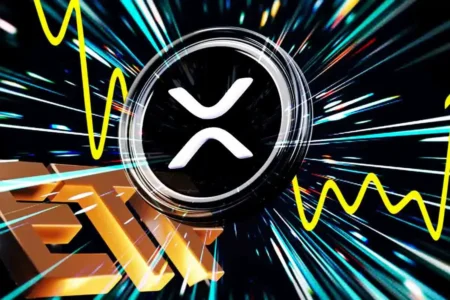The Future of Crypto Regulation: The GENIUS Act and Its Implications
As the U.S. Senate grapples with the future of cryptocurrency legislation, the GENIUS Act, aimed at regulating stablecoins, emerges as a critical barometer. Legal expert John E. Deaton, well-known for his involvement in the XRP legal case, underscores the urgency of this legislation. Without the passage of the GENIUS Act, he warns, the digital asset space may face a regulatory vacuum until at least 2029. Given the Act’s potential to set the groundwork for comprehensive stablecoin regulation, its failure would mean a significant setback for the evolving cryptocurrency landscape.
What Is the GENIUS Act?
Spearheaded by Senator Bill Hagerty, the GENIUS Act intends to create a robust legal framework around the issuance of stablecoins in the United States. Its core objective is to ensure that issuers maintain high-quality reserves, thereby safeguarding users while promoting transparency. During a recent appearance on CNBC’s “Squawk Box,” Senator Hagerty emphasized the bill’s relevance, stating that it aims to provide regulatory clarity and foster dollar-backed innovation. The absence of defined regulations has already driven numerous crypto projects offshore, and the GENIUS Act seeks to create a favorable environment for stablecoin issuers.
Industry Support for Stablecoin Regulation
The urgency surrounding the GENIUS Act has garnered significant support from various stakeholders within the digital finance ecosystem. Faryar Shirzad, Chief Policy Officer at Coinbase, categorically labeled stablecoin legislation as a “national priority.” He pointed out that the U.S. must maintain its leadership position in blockchain-based finance, especially in ensuring the dominance of U.S. dollar-tied stablecoins. Shirzad likened the current moment in crypto regulation to the advent of money market funds in previous decades, arguing that while stablecoins pose challenges to traditional financial systems, they also drive necessary competition.
Bipartisan Measures Amidst Challenges
Despite its bipartisan support, the GENIUS Act is not without its hurdles. Senator Hagerty acknowledges that opposition mainly comes from lawmakers advocating for centralized financial control. Critics like Senator Elizabeth Warren have voiced apprehensions about whether the bill might amplify financial risks or undermine regulatory authority. Furthermore, Deaton points out a notable limitation of the current bill: it doesn’t permit stablecoin holders to earn yield, which could deter investor interest. Thus, the complex interplay of regulatory preferences and public interests poses a substantial challenge to the bill’s passage.
The Stakes of Inaction
The Senate is anticipated to vote on the GENIUS Act soon, and its outcome could significantly influence the trajectory of future crypto initiatives. If the bill falters, industry observers believe it may stifle momentum for other crucial pieces of legislation. Deaton predicts that without stablecoin regulation, broader reforms like BitBonds or crypto tax laws may stagnate until a new administration takes charge. The absence of a regulatory framework not only hampers innovation but also affects consumer trust and market stability in the evolving digital asset space.
Conclusion: A Crossroads for Crypto Legislation
As the GENIUS Act sits at the forefront of contemporary discussions about cryptocurrency regulation, its fate could determine the U.S. position on a global scale. With so much at stake, industry leaders and lawmakers must navigate a complicated landscape marked by conflicting interests. The bill represents not just a regulatory step forward for stablecoins but also a broader opportunity to pave the way for future legislation in a sector that is rapidly transforming. The ability to provide clarity and cohesion in crypto regulation will be pivotal for both investors and innovators, shaping the landscape for years to come.
As we await the Senate’s decision, the implications of this legislation will undoubtedly reverberate across the entire cryptocurrency market, making it a critical moment for stakeholders involved in the digital currency revolution.
















